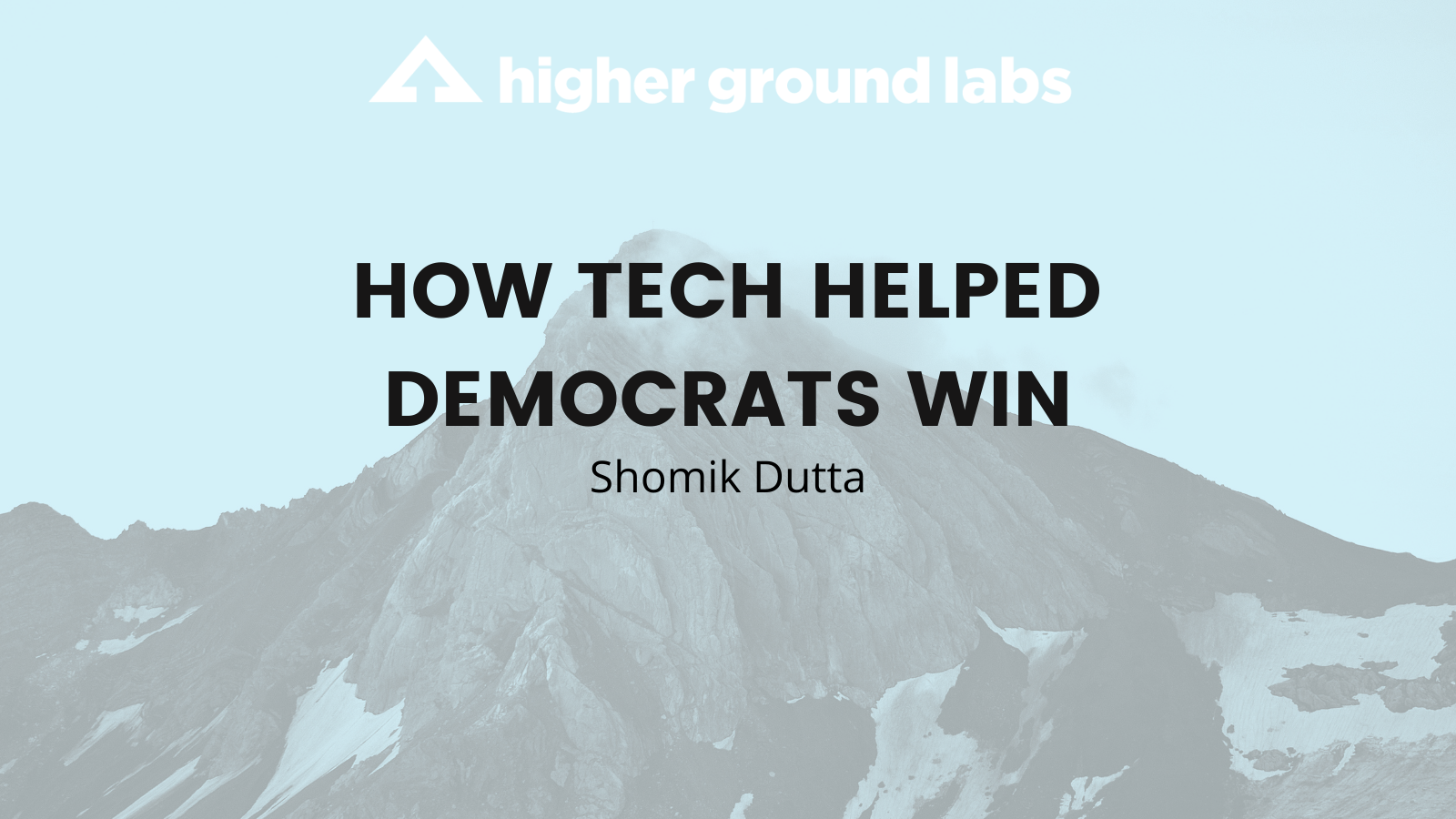EVIDENCE-BASED ANALYSIS: EFFICACY OF TECHNOLOGY IN POLITICS
Jerry Seinfeld once asked President Obama which sport most resembled politics. Without hesitation, President Obama said it was football: a full-contact, grinding game of inches. In our polarized electorate, Democrats must claw over inches. Incremental advantages that tip us over 50% in vote-share are invaluable.
At Higher Ground Labs, we’ve found that good technology gives Democrats an unmistakable advantage. Conversations about technology and politics in the media have a bad habit of reverting to mindless scorekeeping of digital ad-spending on Facebook and Google, or a buzzy web video a bunch of reporters saw on Twitter. The true reach of political technology extends far beyond social media and digital advertising, and a new batch of election data has uncovered some surprising and promising impacts of political technology.
Good technology wins campaigns
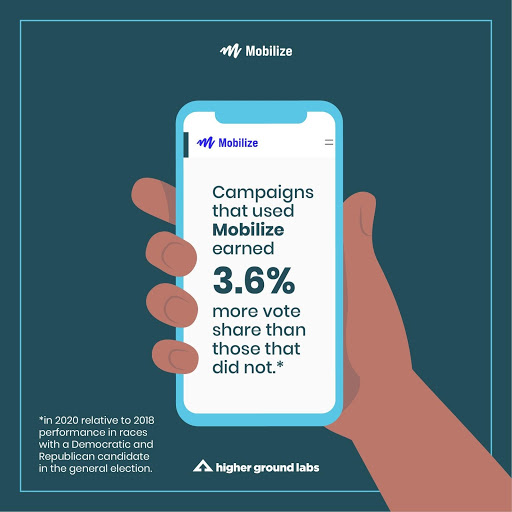
As part of a 2020 election post-mortem, Higher Ground Labs recently examined the performance of thousands of Democratic campaigns to uncover outcomes between the campaigns that utilized technology and those that did not. We hired Nina Wornhoff, a senior data scientist fresh off the Biden Campaign, to work with us. Nina zeroed in on three technology companies: an organizing software called Mobilize; an analytics & planning software called Deck; and a friend-to-friend software called Impactive (known in 2020 as Outvote). Nina controlled for variables like money and media coverage and isolated for technology’s impact as best possible. We uncovered some dizzying correlations between campaigns that were heavy users of technology and positive political outcomes:
Better Volunteer Management Gets Votes: Campaigns that used Mobilize won 3.6% More Vote Share
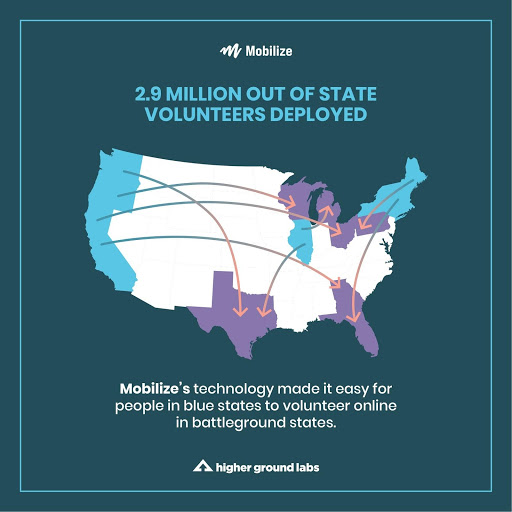
Mobilize is an organizing software used by virtually every Democratic campaign of every size. Bloomberg recently called it the “digital machine they [Democrats] need to keep winning.” Nina found that campaigns that used their own Mobilize accounts performed 3.6 percentage points better than those that did not when compared to 2018 results. This controlled for a campaign’s fundraising success, in case those that paid for candidate-specific Mobilize accounts simply had more money to spend (data in Mobilize by State).
Nina also quantified the impact of out of state volunteering: a phenomenon made easy with Mobilize. 2.9 million out of state volunteers flooded battleground states to text, call and donate. This was a meaningful and under-appreciated value proposition in tight races – the ability to flexibly redirect thousands of out-of-state volunteers into races with the highest needs afforded us “just in time” voter contact volume.
Texting Friends Increases Vote Share: Every 100 volunteers using impactive = 4% uplift in vote share
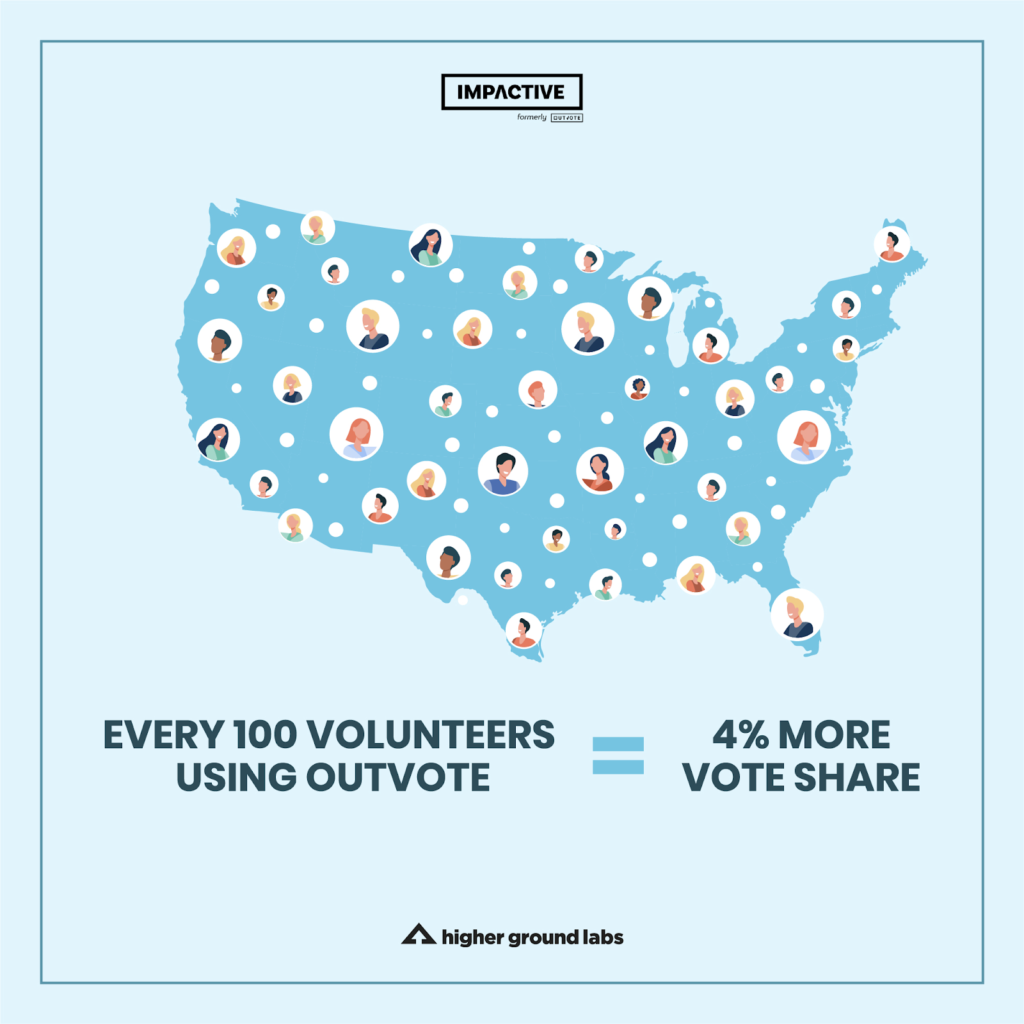
Impactive (formerly known as Outvote) is a friend-to-friend voter outreach platform that was used by the Biden campaign, Congressional campaigns, and many US Senate campaigns. Local volunteers who used Outvote to send messages to friends in the same campaign district measurably correlated to higher vote shares. When Nina linked Outvote users to their home districts, she found that having Outvote users in a district increased Democratic vote share by 0.04pp. This means that on average, every 100 volunteers using Outvote to message their friends in their district could increase vote share by 4%. In the US House last year, 23 seats were won by less than 2 percentage points. Gains from Outvote can make a substantive difference in control of the legislature.
Predictive Analytics Beats Polling: Campaigns that used Deck performed an average of 3.5 percentage points better than those that did not
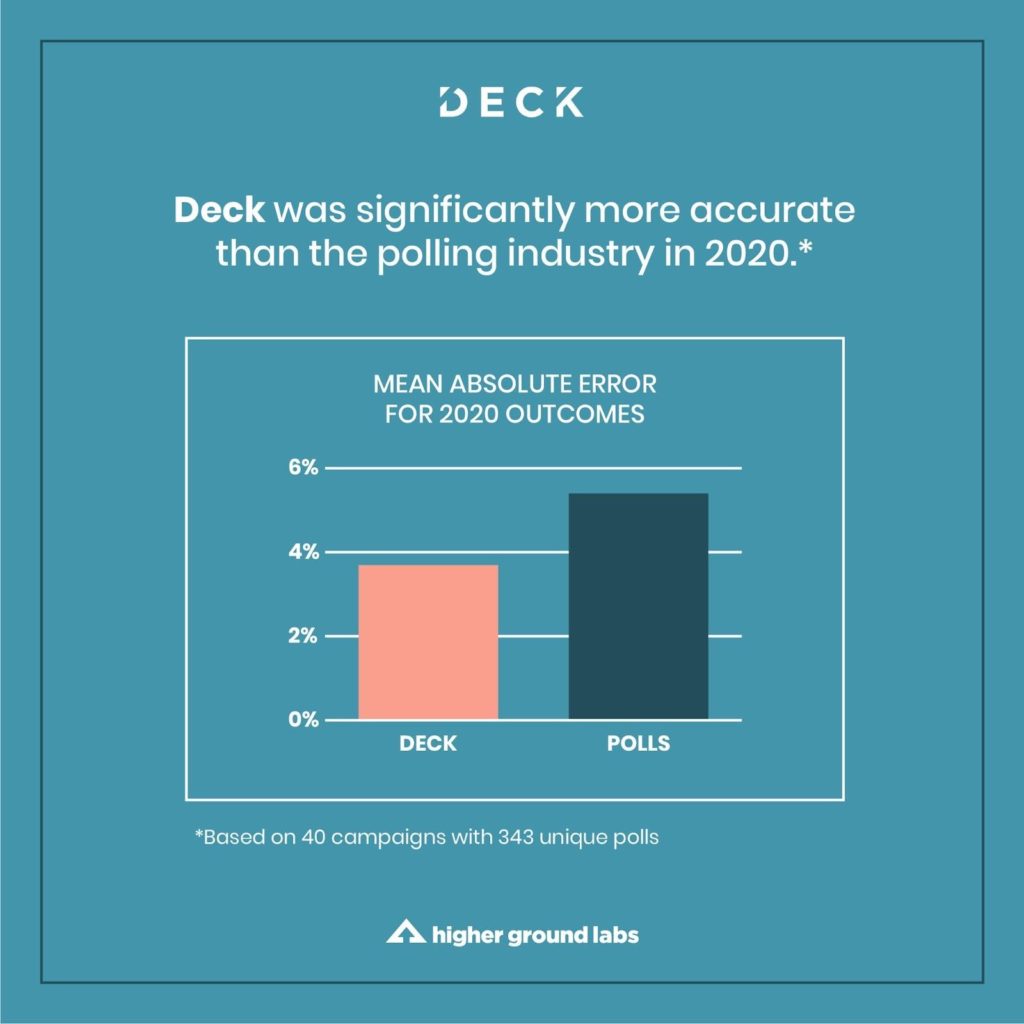
Deck is a predictive analytics and voter targeting platform that helps campaigns run most effectively by guiding decision-making and targeting.
Across thousands of campaigns, Deck predictions outperformed the polling industry by 2.1%. They scored a significantly lower margin of error (3.6%) compared to the mean margin of error from the polling industry for those same campaigns (5.7%).
Thanks to a national contract with the DNC, Deck was available for free for every Democratic campaign in the country. This enabled us to study outcomes between campaigns that chose to use their Deck account against those who chose not to. Democratic campaigns that used Deck performed an average of 3.5 percentage points better than those that did not use Deck, relative to election results from 2018. We then controlled for fundraising success and earned media of campaigns, and found that Deck users still outperformed non-users by 1.2 percentage points. Deck’s performance enhancement was especially pronounced amongst downballot campaigns, which outperformed non-Deck users by as much as 6.0 percentage points across State Senate races.
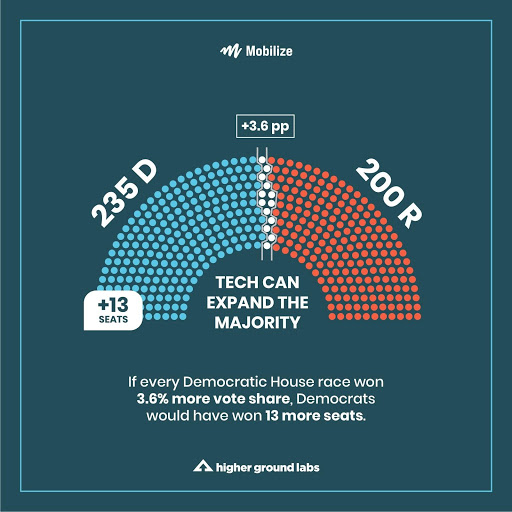
Technology is no panacea in politics. But it is an essential component to a winning strategy. We recognize that correlation is not causation. It’s possible that candidates that drank smoothies on Tuesdays also won more vote share than those that did not. But smoothies don’t directly impact campaign performance the way political-technology can. There is more scientific RCT work ahead of us, but if these correlational observations from 2020 are in fact causative, we could win 13 more seats in the House alone in 2022. That’s worth our investment and time and your attention. Let’s get to work.
Raw data here: https://github.com/decktools/eval/blob/main/polling-comparison.csv
https://github.com/decktools/eval/blob/main/result_shift_2018_2020.csv
